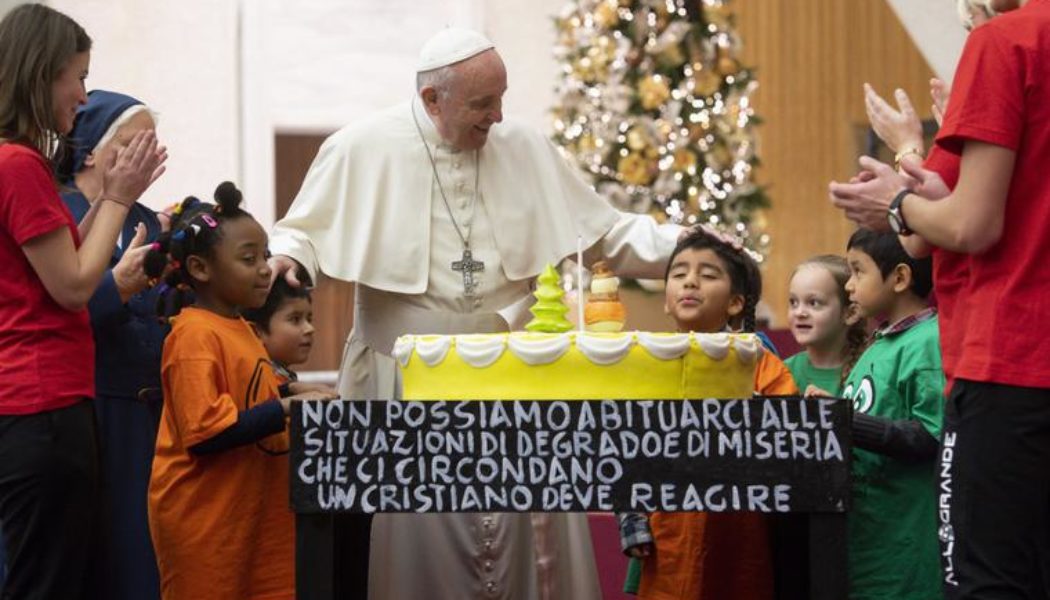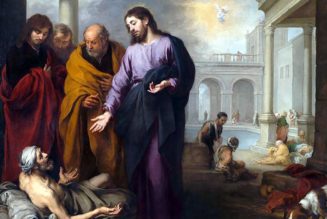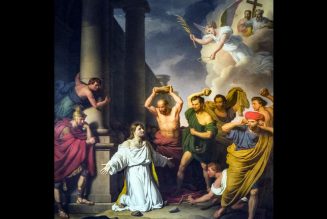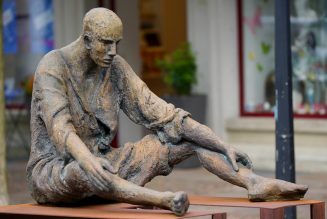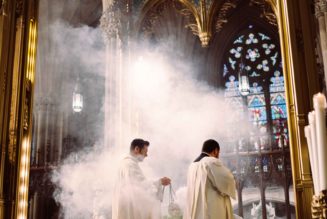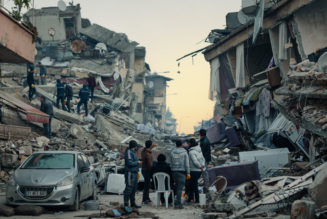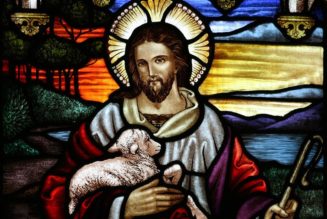
COMMENTARY: The Holy Father turns 85 today, becoming only the seventh pope to serve in office at that age.
Happy Birthday Holy Father!
Pope Francis turns 85 on Dec. 17, a major milestone in the history of the papacy.
Only six popes have ever turned 85 in office since 1700:
i) Innocent XII, who died at 85 in 1700;
ii) Pius IX, the longest-serving pope ever, who died at 85 in 1878;
iii) Clement X, who died at 86 in 1676;
iv) Clement XII, who died at 87 in 1740;
v) Leo XIII, the oldest pope in history, who died at 93 in 1903.
The sixth pope to turn 85 in office was Benedict XVI, who abdicated at age 85.
St. John Paul II died six weeks short of his 85th birthday.
Pope Francis becomes only the seventh pope to serve in office at age 85.
In 2016, for his 80th birthday, I wrote of eight reasons to give thanks for his ministry. I think that holds up pretty well five years later. I think it would be odd to add a “half” reason for the 85th, but I promise a ninth reason for the 90th.
How long will Pope Francis live? Recall the quip of Leo XIII on his 90th birthday, when hearing the toast proposing good wishes that he reach 100 years old.
“Why limit Divine Providence?” Leo playfully chided.
So Pope Francis may see 90 or beyond. On the other hand, now that he is 85 and had major surgery this summer — “It saved my life,” the Holy Father subsequently said — there will be an increasing number of stories that the Pope is dying. One day they will be right, but on this birthday, the Holy Father appears in fine form.
On the occasion of his birthday, one might marvel at the ways that Divine Providence has moved in the life of Jorge Bergoglio. Why limit what Providence can do might indeed be theme of the twists and turns of his extraordinary life.
Fifty years ago, at the age of 35, a young Father Bergoglio was only two years ordained a priest and preparing to complete his final vows as a Jesuit, which he would do in April 1973. Three months after those vows, he was appointed provincial of the Jesuits in Argentina, a decision he would later call “crazy” for someone so young.
His six-year term as provincial coincided with turmoil in the Jesuits, as the worldwide order suffered from doctrinal heterodoxy, moral turpitude and massive defections. Argentina descended into the “Dirty War” of civil strife and mass killings.
Father Bergoglio, by his own account, did not handle it well. By the end of his term, the province was deeply divided. Bergoglio was transferred to the Jesuit seminary. By 1986, on his 50th birthday, the Argentinian Jesuits had seen enough of him. Into exile he went, first to Germany for unfinished doctoral studies and then to Cordoba, 400 miles away from Buenos Aires.
“But by the time he ended his leadership role as rector of Buenos Aires’ Jesuit seminary in 1986, those who loathed him had begun to outnumber those who loved him,” writes Paul Vallely, author of a laudatory biography of Pope Francis.
“In response to these cleavages within the Argentine Jesuit community, Jesuit leaders in Rome eventually decided to strip Bergoglio, then 50, of all responsibility. In 1990, he was sent to Cordoba to live in the Jesuit residence, pray and work on his doctoral thesis. But he was not permitted to say Mass in public in the Jesuit church. He could only go there to hear confessions. He was not allowed to make phone calls without permission. His letters were controlled. His supporters were told not to contact him. The ostracism from his peers was to be complete.”
And there the ecclesiastical career of Father Jorge Bergoglio would have ended, collateral damage of the ongoing disintegration of the Society of Jesus.
Providence intervened in a strange way. Archbishop Antonio Quarracino of Buenos Aires knew of Father Bergoglio’s qualities and piety, and concluded that anyone that hated by the Jesuits couldn’t be half bad. So he asked for Father Bergoglio as his auxiliary bishop in 1992, and Pope John Paul agreed, later elevating him to be archbishop of Buenos Aires and a cardinal.
Yet so complete was the estrangement of Archbishop Bergoglio from the Jesuits that he never visited Jesuit houses — including the general curia in Rome — during the 21 years of his episcopal service. Only after did his election as pope did the Jesuits reconcile with him.
That the first Jesuit pope would be estranged from his own society is simply to strange to be true, except that it is. No one would believe it if was made up. It’s the kind of thing which led Hillaire Belloc to say that the Catholic Church is governed with a sort of “knavish imbecility.”
The advancement of Cardinal Bergoglio toward his election as Pope Francis was precisely because so many Jesuits “loathed” him. In the divided Church — both in Latin American and universally — that followed the Second Vatican Council, it was thought by many that to be hated by the Jesuits was a perverse badge of honor. That view prevailed at the highest levels of the Vatican, too.
Why limit Divine Providence? On his 85th birthday, Pope Francis is an illustration of why that is a foolish thing to do.
Join Our Telegram Group : Salvation & Prosperity
